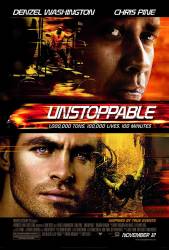
Question: Wouldn't it be easier if Stewart just attached his cab to 777 and any other qualified personnel with him just walked from Steward to 777 and took control of it, too easy perhaps? Or the welder could have someone with a BB gun in the back to shoot the famous "kill switch" next to fuel tank, instead of the cops trying to?
Answer: Put a man in the back of the truck with a broomstick and use it to push the fuel cut off switch as the truck drives alongside the train.
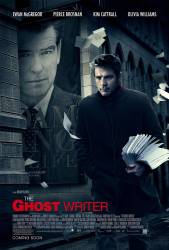
Question: Was the ghostwriter murdered? Why? The book had already been published, and he only discovered the truth about Ruth minutes before, so who would have wanted him dead?
Answer: Who would want him dead? Ruth, for one, as well as Professor Emmett (her CIA recruiter) and others involved in the conspiracy. Yes, the book had been published, but the secret message only comes across if one is in possession of all the knowledge that the writer had acquired, which the casual reader would not have. And minutes is plenty of time for Ruth, Emmett, or anyone else to make a phone call and arrange the hit.
The published book was a rewrite and would not have the secret message in the chapter beginnings.
The published book was a rewrite of the original manuscript. He gives her the original manuscript that he was working off, not a final draft.
We know the beginning of the book was rewritten as he didn't like it. Almost certainly, the clue is not in the published version of the book. Ruth was shocked to read the note and is delivering her speech so is unlikely to be complicit in the murder of the Ghostwriter. The ending suggests that Ruth, too, is little more than a pawn in the whole conspiracy.
Makes no sense, he was run down 2 minutes after she read it.
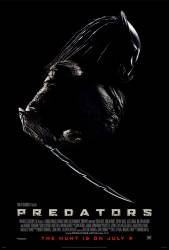
Question: This film tells a little about different clans and how some Predators hunt others (smaller ones, how they ever came to be and are not extinct I'd beyond me). But is it every mentioned anywhere just how Predators are created/born? The films never give an indication towards there being any female Predators. We know Aliens have the Face-Huggers and they spawn Aliens from Humans. What about Predators? Is it ever noted if they do something similar, mate like Humans do or are created using some kind of technology? Always been curious about this, thanks for any answer.
Chosen answer: Female predators (or Yautja) do not hunt, and are therefore rarely seen off their home world. Predators do have a mating season and females choose their mates based on how accomplished a hunter they are.

Question: The children in Teddy's hallucinations were bloody but they died by drowning. Is this just an inference to Andrew's guilt that his children's "blood is on his hands" because he didn't seek treatment for Dolores' mental illness? Or is it Scorsese being overly dramatic and adding a lot of blood where it doesn't belong? Also, how exactly did Andrew kill Dolores? Did he use his service revolver, even though we don't hear the shot?
Chosen answer: I think the recurring blood comes from the blood of his wife when he killed her. there was a lot of blood you see, in his psychosis that means a lot and has taken over a large part of his hallucinations, just like Dachau camp. Yes, he did shoot his wife Dolores, in the belly. You can see it in the end of the movie.
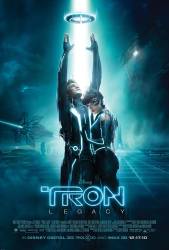
Question: What exactly was Clu's vision of "the perfect system"?
Answer: Going by Clu's behavior and personality in the film, Clu's idea of a perfect system was likely a system where every component worked as intended and as expected. One where every action by programs could be consistently predicted. The Isometric Algorithms very existence went against everything that he believed was "perfect", in that by their nature their actions could not be predicted. Users also seem to exist in contrast to Clu's beliefs as their human emotions cause them to act irrationally and erratically.
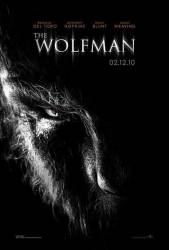
Question: When John is telling Lawrence about the argument with Ben, John says that Ben would have taken Gwen away from him. Does this mean that John was secretly in love with Gwen?
Answer: Of course, probably not real love, but he wanted to possess her.
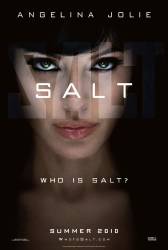
Question: Salt has been with the agency for a long time and has earned the trust of her colleagues, so when she is accused of being a spy, why would her superiors take the word of a defector over her?
Answer: They have to at least investigate that kind of an accusation, and when Salt so vigorously resists arrest it basically confirms, in their minds, that she is in fact a spy.
I actually kind of find it shocking that they would be willing to believe a guy who would do or say anything to save himself and since Salt was with the agency a long time, they could have at least given her the benefit of the doubt.

Question: Aron tells Kristi and Megan that Blue John Canyon is actually named after Butch Cassidy's cook, Blue John. Is this true?
Chosen answer: The actual name is Bluejohn Canyon. According to online tourist info for Utah, "It appears to have been named after a minor Robbers Roost outlaw by the name of John Griffith. Griffith had one blue eye and one brown eye and thus was saddled with the nickname "Blue John." It is recognized that he kept stolen horses in the area, perhaps watering them at nearby springs. In the fall of 1899 Griffith is reported to have put in at Hite with a small boat with the intention of reaching Lee's Ferry. He was never heard from again."
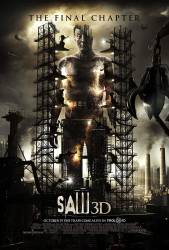
Question: Why does Dr Gordon decide to work with John? And why does he put himself, his daughter and wife in extreme danger?
Answer: He, his wife and his daughter were abducted before he decided to work with Jigsaw. He didn't put them in danger. As for why he decided to work with Jigsaw following his ordeal, like other characters in the franchise, he either developed a level of Stockholm syndrome or he concluded that Jigsaw's methods were right, or a combination of both.
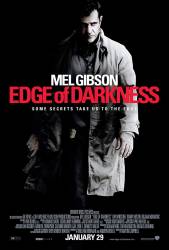
Question: How and when did Thomas Craven get poisoned? He was already sick before he got tasered, kidnapped and taken to the Northmoor facility.
Chosen answer: Possibly from getting his daughter's blood on him, when he accepted a drink from the Northmoor executive, or from handling his daughter's radioactive belongings. Given the depth of the coverup, they may have even anticipated that she'd come to him and broken into his house and poisoned him before the story even began.
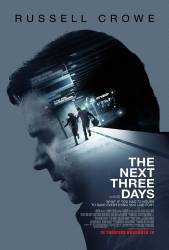
Question: How does his father know what their final destination is?
Answer: He read their airline tickets and probably the plan for their final destination is packed together with it.

Question: How does Cassandra manage to find Brett's home address and track him down there? There's no suggestion he gives her any other information than his mobile number, which isn't enough to find an address.
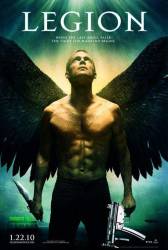
Question: Did I miss something somewhere? What was so special about the baby that its birth would change everything?
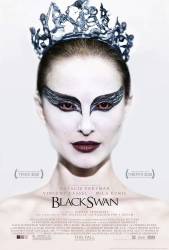
Question: I didn't understand the movie. Was it all a metaphor for her descent into madness? And the ending. How much of the movie was imagined and how much was actually real?
Answer: **Spoiler Alert** I would say you are correct about the movie being a metaphor for descent into madness, but also displays themes of repressed sexuality and transformation. As the main character is given the lead role, she must play dual roles, one good and one evil, with the hallucinations representing the latter. Towards the beginning, Nina only embodies the personality traits of the white swan, innocence and grace. As the film gradually progresses, Ninas hallucinations represent her metamorphosis into the seductive and mysterious black swan. The film expertly convinces the audience that Lily (Mila Kunis) is out for Nina's role. In a twist ending, it is revealed that Nina has imagined most of her encounters with lily (including their sexual one) and has instead been battling herself, such as breaking away from her domineering mother and coming to terms with her sexuality. At the end, Nina really does stab herself (but actually hallucinates it is Lily she is stabbing) and her fate is left ambiguous.
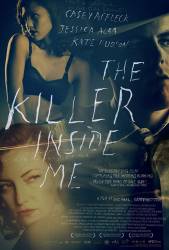
Question: At the very end where Lou is visited by the cops and Joyce, couldn't one of them smell the gasoline everywhere? Lou drenched the entire house before they arrived.
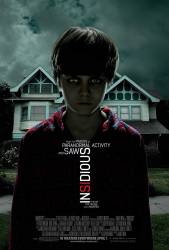
Question: When Josh is in the further looking for Dalton, what is the deal with the family that looks like mannequins and has the creepy smiles? Why does the one girl shoot the family? Is there any back story on it?
Answer: It's implied that the girl went crazy and killed her family, but it's not really elaborated on. They're just some of the many spirits to be trapped in and haunt the Further, likely due to the violent nature of their deaths.
Answer: They are just people trapped in the further after their terrible death. It would be nice to later find out the back story on them in a future film.
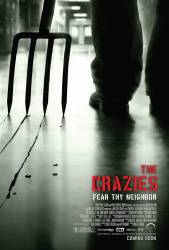
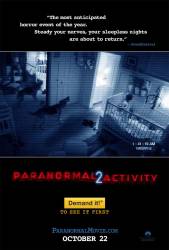
Answer: Yeah, but it wouldn't be nearly as dramatic.